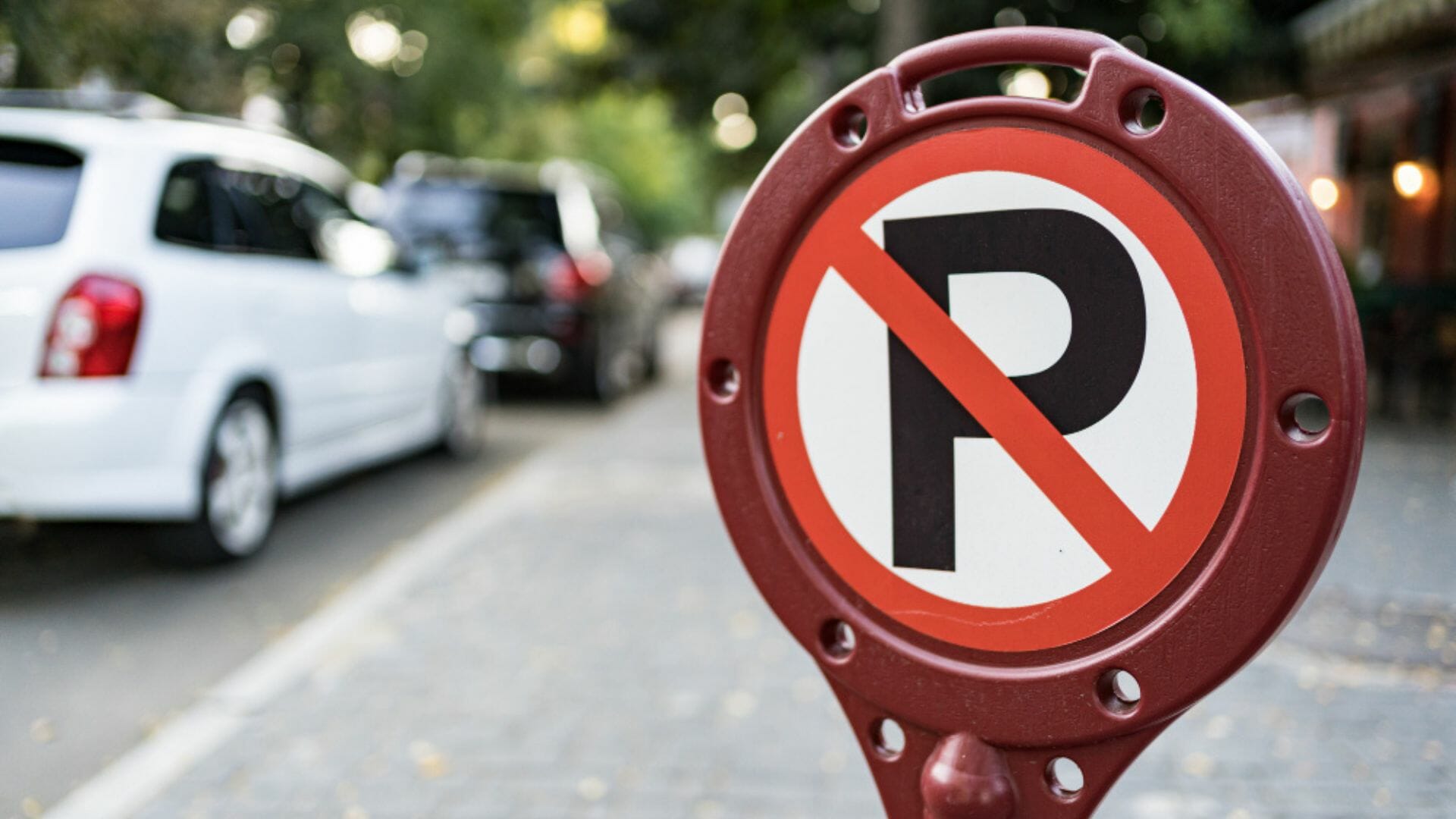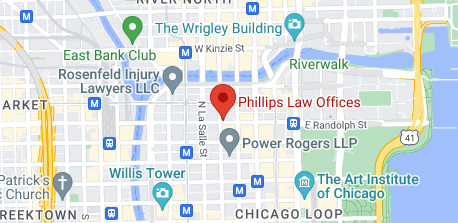Like traffic rules and regulations, every state has parking laws for road safety. Accordingly, drivers must leave their vehicles in designated areas, abide by time limits, and not obstruct crosswalks or fire hydrants. Following all applicable laws is necessary when parking your car in Illinois. Illegal parking can incur hefty fines and significantly increase the risk of pedestrian accidents. By complying with Illinois parking laws, drivers create a more secure and organized driving environment. If motorists strike a pedestrian while disobeying the law, this may give rise to legal action. If you have inquiries about pedestrian accidents and parking lot laws, consult our Chicago pedestrian accident lawyer at Phillip law offices.
Understanding Illinois Parking Law
Parking laws are prominent in any jurisdiction for maintaining order and ensuring a smooth traffic flow. These laws in Illinois intend to regulate parking practices, promote safety, and effectively manage limited parking spaces. Though knowing them is beneficial, note that local municipalities may have additional rules. It is wise to research the local laws of the town or city you reside or intend to visit. This way, you can ensure compliance and steer clear of potential violations. Here is a brief overview of the different parking laws in the state.
Hill parking
When parking on a hill, always put the gear in ‘park’ and, if necessary, activate the parking/emergency brake. Release the brake when starting your car from an uphill or downhill location and give appropriate signals. Move forward gradually and safely after scanning for oncoming traffic. In Illinois, drivers must generally abide by the following rules when parking in hilly areas:
- Use parking brakes or wheel chocks if parking on a slope to stop your vehicle from rolling.
- Turn your wheels away from the curb if you are parking uphill and there is a curb.
- Turn your wheels to the right if you are parking uphill that has no curb.
- Whether there is a curb or not, turn your front wheels toward the right side of the road.
- Observe parking signs or guidelines in the area where you intend to park.
Prohibited parking
Illinois parking laws have several prohibited to ensure road safety and maintaining traffic flow. The state has designated certain areas as no-parking zones, and the following regulations apply:
- Disallows parking within 15 feet of a fire hydrant to ensure easy access for emergency vehicles
- Prohibits using a designated handicap-parking space without a valid disability permit.
- Forbids parking within 20 feet of an intersection or crosswalk, ensuring clear visibility for drivers and pedestrians.
- Prevents obstruction to residential or commercial entrances by prohibiting parking in front of driveways.
- Restricts parking near bus stops or loading zones to maintain effective transportation services.
- No parking in front of fire stations or on designated fire lanes to allow for swift emergency response
Residential Parking
The state may issue residential parking permit cards to residents of areas with restricted parking. These permits enable them to park their vehicles on the streets of the designated residential permit zones. The motive behind these permits is to give residents priority in parking and deter non-residents from occupying scarce parking spaces. However, those willing to obtain these permit cards should provide proof of residency by submitting a driver’s license or utility bill. Once approved and collected, they can display the card on their vehicles’ windshields or rearview mirrors. Local governments enforce residential parking rights to ensure compliance with the parking regulations in residential areas. Anyone who parks in these restricted zones without a valid permit may face fines or towing.
Parking for individuals with disabilities
The state provides accessible parking spaces for people with disabilities. It allows disabled individuals to access public amenities and services without hassles. However, they must obtain authorization from the governing bodies to enjoy this facility. The Illinois Secretary of State issues parking placards or license plates to park in designated parking spaces. The authorized holders of these parking placards or plates are exempt from parking meter fees and time restrictions (except where parking is limited to 30 minutes or less).
Striped areas on the pavement are reserved parking spaces for them. They must enter and exit the vehicle while the parking privileges are in use. Unauthorized parking in these spaces may result in hefty fines and penalties. These disabled parking regulations require strict enforcement to ensure equal access and convenience for those with disabilities relying on accessible parking.
Time-Limited Parking
In Illinois, time-limited parking refers to parking regulations restricting the duration of leaving a vehicle parked somewhere. Drivers can determine these restrictions using signage or a parking meter because they specify the allotted time for parking. Note that the time limit varies from one parking space to another. For instance, the time limit differs in commercial, residential, or any high-demand areas depending on where the parking zone is and its specific use. Anyone who violates these parking rules has to incur penalties or other sanctions, such as car towing. All users must be aware of and follow the various time restrictions set forth by the governing bodies to avoid such fines and have equitable access to parking spaces.
Metered parking
This parking regulation refers to a system where motorists pay for parking in designated zones for a stipulated duration. They usually pay via specified parking meters, coins, credit cards, or mobile apps. Metered parking feature is common in urban areas of Illinois. The rates differ based on the location and time of day. Congested urban areas typically impose high rates. Adhering to the time restrictions displayed on the meter is necessary. Local authorities are in charge of enforcing these parking regulations. If anyone exceeds the specified time limit and fails to pay, they will have to pay fines or face vehicle towing. To avoid penalties, follow the posted signs and metered parking regulations.
Parallel parking
According to this parking regulation, drivers must park vehicles parallel to the curb on the roadside or direction in which traffic is moving. It requires parking with right-hand wheels aligned to and within 12 inches of the curb, specifically on streets with two-way traffic. However, park within 12 inches of the right or left curb on a one-way road. This parking technique aims to leave enough space between vehicles, maintain safety and keep traffic flowing where space is less.
Learning parallel parking is mandatory for drivers in Illinois. It is a part of the road test and vital for obtaining a driver’s license in the state. The procedure entails maneuvering the vehicle into a parking space between two parked cars using precise steering and spatial awareness. When parallel parking, adhere to the rules and regulations established by local authorities to avoid penalties.
Illinois Parking Violations and Penalties

In Illinois, parking infringements and penalties cover different infractions for illegal or improper parking. The rules and regulations differ between municipalities within the state, but there are some similarities. Here is a general overview of Illinois parking offenses and associated fines:
Expired meter offenses
Leaving vehicles in a metered space without paying the fee or allowing the meter to run out is common. The fines typically range from $20 to $75, depending on local ordinances and specific circumstances. Repeated violations may lead to heftier fines or even vehicle immobilization.
Disabled parking infraction
Without a valid parking permit, drivers cannot park in a parking space reserved for disabled individuals. Violations of the handicap parking regulations may result in fines of $250 to $1,000. Repeat offenders may face harsher penalties or have their cars towed or impounded.
No parking zone
Drivers must not park in “No Parking” or “Tow Zone” areas in Illinois. Offenders may be subject to fines of $50 to $200 depending on the location and the extent of the violation. In some cases, owners may incur additional expenses if their vehicles get impounded or towed.
Blocking fire hydrants or driveways
It’s against the law to park in front of fire hydrants or driveways, which can obstruct emergency response vehicles. The vehicle may be impounded and fined up to $150 or more for violations.
Street Cleaning/Alternate Side Parking Violation
Most cities in Illinois have established street cleaning schedules or alternate side parking regulations to facilitate street maintenance. If you break these parking rules, you have to pay fines that could range from $25 to $100. Your car might also get towed away to clear the street for cleaning.
Violations of the Residential Permit
Parking without a valid permit in a residential permit zone may result in fines ranging from $30 to $200. Besides penalties, illegal parking may involve permit suspension, revocation, and potential legal actions. The specific infraction can vary depending on the jurisdiction and severity of the violation.
General parking issues in Illinois
Common parking-related problems in Illinois include parking tickets, disabled parking violations, towing issues, parking lot accidents, and landlord-tenant parking disputes. Seek a personal injury attorney specializing in traffic violations, municipal law, personal injury, disability rights, or real estate to help resolve these problems effectively. Some of the issues that may require the assistance of a specialized attorney include the following:
- Parking in a no-parking zone
- Unjust parking ticket
- Wrongful vehicle towing
- Barring fire hydrants or driveways
- Parking in handicap-reserved spaces without a permit
- Exceeding time limits in metered parking
- Leaving vehicles in prohibited areas
- Parking lot accident due to negligence
- Parking lot liability
- Parking-related zoning and land use issues
- Hit-and-run incidents
- Parking lease disputes
- Vehicular damage in the parking space
The above-stated list only includes illustrative examples; actual parking problems may vary. Since every situation is different, whether or not you need an attorney depends on the specifics of your case. However, we suggest consulting a qualified attorney for accurate and personalized advice tailored to your situation. Legal professionals will evaluate your case and work diligently to resolve it in your best interests.
Specialized Attorney for Illinois Parking Law
Illinois parking laws usually hold the registered vehicle owner responsible for parking in an illegal location. If you can prove that a parking ticket was issued because someone else was driving the vehicle, you might be able to have the state charge the fine to that person instead. If your car goes missing or stolen, you are not liable for any violations of state parking laws committed while driving it. Regardless of the nature of your parking-related issue, an attorney can provide valuable assistance by offering legal advice and representation. At Phillips Law Offices, our legal team specializes in parking-related matters and can provide comprehensive legal care. Here is a brief discussion of how we can help resolve parking-related cases.
Disputes and violations
Our skilled attorney can assist you in contesting a parking ticket or citation that you feel is unfair or unjustified. They can examine the circumstances surrounding the violation, compile evidence, and, if necessary, represent you in court. They can also bargain with the concerned authorities, compelling them to reduce fines.
Contract and lease agreements
Legal professionals can help with the review of parking contracts and lease agreements. If you have disputes with a parking facility or landlord over terms, conditions, or fees, our attorney can help you understand your rights. We can guide you on how to proceed with your case.
Administrative hearings
Parking-related issues may require you to attend court in some cases. Our attorney can represent you by presenting your case, cross-examining witnesses, and advocating in your best interests. They can help navigate the complex process and defend your rights for fair settlements.
Accessibility issues
If you have concerns regarding accessible parking spaces and compliance with disability laws, seek legal advice. Our attorney (who specializes in disability rights) can explore options, clarify your queries, and advocate for appropriate accommodations.
If you want to understand the legal implications of your parking-related situation, contact us now. Schedule a meeting by visiting our website or calling (312) 598-0917. We can explain your obligations under local Illinois parking laws and help resolve your case.
Also Reads:
How can I get an accident off my record?






